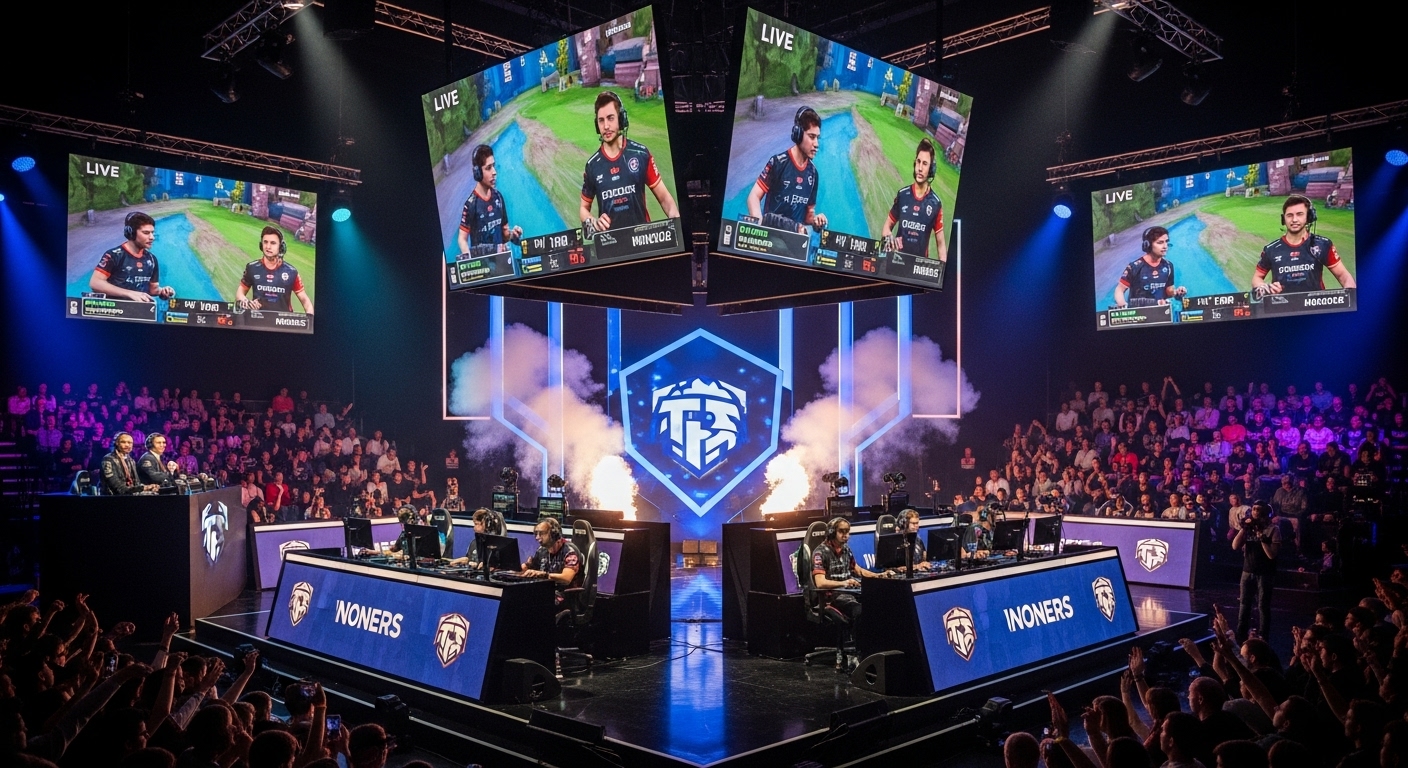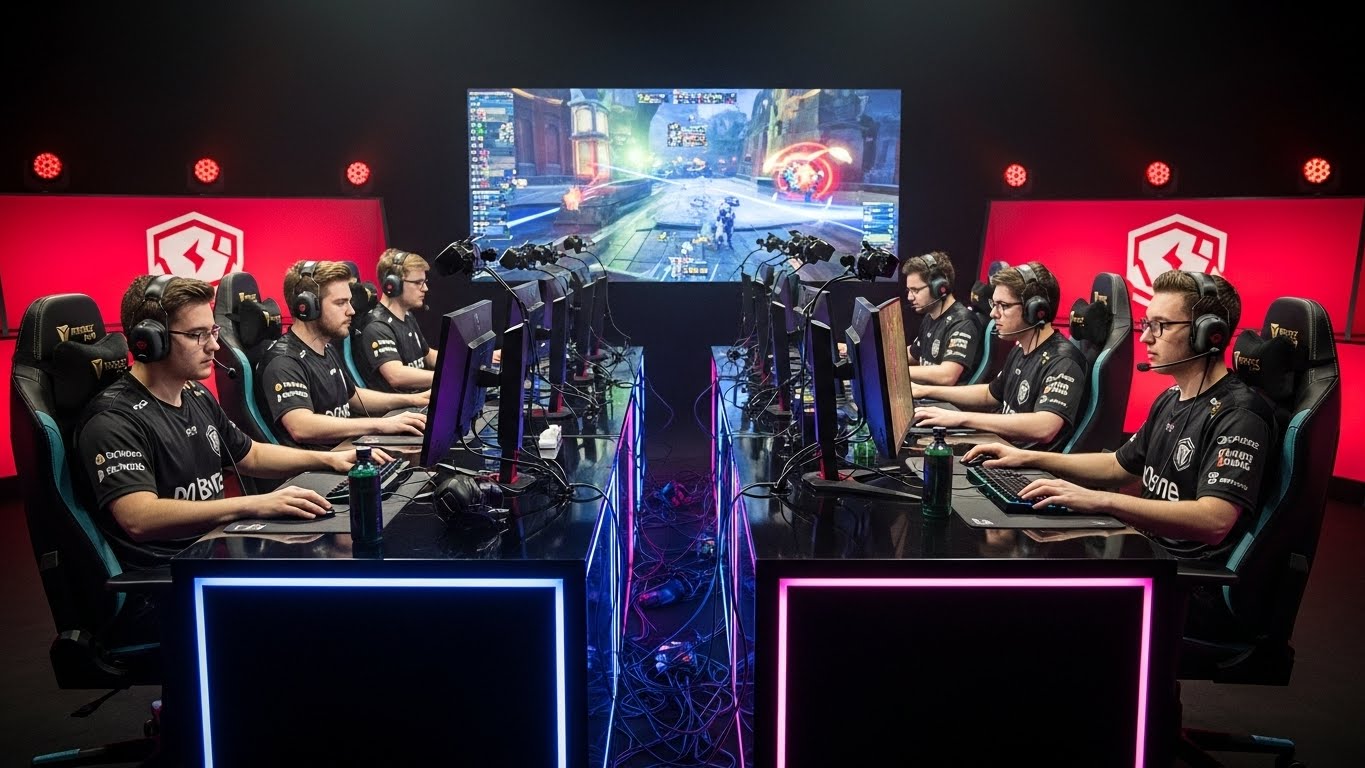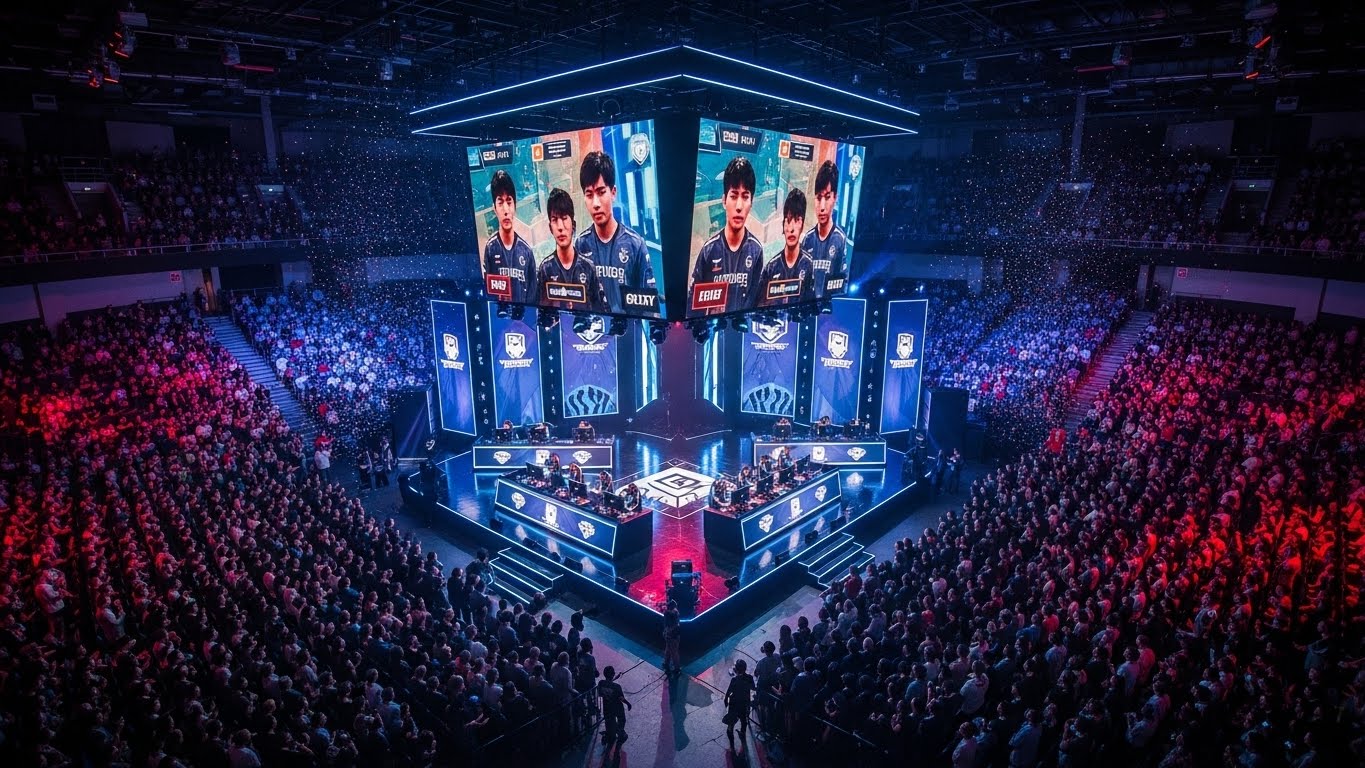Introduction
The rise of esports marks one of the most extraordinary transformations in modern entertainment. What began as small gaming competitions in dimly lit rooms has evolved into massive international tournaments filling entire stadiums. Esports, short for electronic sports, is now a billion-dollar industry where gamers compete professionally across various platforms and genres. Unlike traditional sports, esports thrives on technology, connectivity, and digital innovation, attracting millions of fans who tune in to watch their favorite teams and players battle in virtual worlds. This blog explores the journey of esports, its impact on culture, economy, and society, and how it is shaping the future of entertainment.
The Origins of Esports
The roots of esports can be traced back to the early 1970s, when the first known video game competition was held at Stanford University for the game Spacewar. Though the prizes were modest, the spirit of competition was born. In the 1980s, with the rise of arcade games like Pac-Man and Donkey Kong, gaming competitions became a popular pastime. Players competed for high scores and recognition in magazines, laying the foundation for what would become organized electronic sports.
By the late 1990s, with the arrival of broadband internet and advanced gaming consoles, esports started gaining global traction. Games like StarCraft in South Korea, Counter-Strike in Europe, and Quake in the United States helped create professional gaming leagues. This era marked the beginning of esports as a legitimate form of competition and entertainment.
The Rise of Professional Esports
The 2000s ushered in a new era for esports with the rise of professional leagues, sponsorships, and organized tournaments. Competitive titles such as League of Legends, Dota 2, and Call of Duty redefined how gaming competitions were structured. With millions of dollars in prize pools and massive fan followings, these games attracted both amateur and professional players.
In South Korea, esports became a national phenomenon, with televised matches and government support. Meanwhile, in North America and Europe, gaming organizations began investing heavily in team development, coaching, and branding. The introduction of streaming platforms allowed fans worldwide to watch live matches, propelling esports from niche entertainment to mainstream recognition.
The Role of Technology in Esports Growth
Technology lies at the heart of esports. High-speed internet, powerful gaming PCs, and cloud-based platforms have made it possible for players across the globe to compete in real time. Virtual reality and augmented reality are also opening new frontiers for immersive competitive experiences.
Artificial intelligence has begun influencing training methodologies in esports, helping players analyze performance and refine strategies. Advanced analytics track player movement, accuracy, and decision-making, allowing teams to enhance their gameplay efficiency. As technology continues to evolve, so too will the depth and complexity of competitive gaming.
The Business of Esports
Esports is not just about playing games; it is a thriving business ecosystem involving sponsorships, advertising, broadcasting rights, merchandise, and event management. Major corporations have recognized the marketing potential within esports, investing millions in team sponsorships and branded tournaments. Global tournaments like The International and the League of Legends World Championship draw viewership numbers comparable to major traditional sporting events.
Media companies and streaming platforms also play a key role in monetizing esports. Broadcasting rights, exclusive streaming deals, and subscription-based fan services generate significant revenue. Esports organizations are now run like professional sports franchises, complete with coaches, nutritionists, analysts, and management staff ensuring player performance and brand growth.
The Cultural Impact of Esports
Esports has had a profound cultural impact across the world. It has created a new kind of celebrity — the professional gamer. These players often command massive followings, influencing millions of fans who look up to them much like traditional athletes. Online communities, fan clubs, and social media platforms have become spaces where gamers and fans interact, discuss strategies, and celebrate their shared passion for competitive gaming.
Esports has also helped bridge cultural and geographic gaps. Players from different nations come together in global tournaments, fostering international cooperation and understanding. Gaming, once viewed as a solitary hobby, has evolved into a community-driven experience that connects people through shared excitement and competition.
The Educational and Career Opportunities in Esports
As esports continues to grow, educational institutions are recognizing its academic and professional potential. Universities now offer scholarships for esports athletes and degrees in game design, management, and marketing. This integration of esports into education highlights the industry’s long-term sustainability and its role in the digital economy.
Beyond professional play, there are numerous career paths within the esports ecosystem. These include event organizers, shoutcasters, content creators, graphic designers, and software developers. The diversity of roles reflects the complexity of the esports industry, which requires expertise in multiple fields, from technology to psychology and marketing.
Esports and the Global Economy
Esports contributes significantly to the global digital economy. The industry generates billions in revenue annually through ticket sales, advertising, and merchandise. Major tournaments stimulate local economies by attracting visitors, sponsors, and media coverage. Cities around the world are building dedicated esports arenas to host live events, further legitimizing competitive gaming as a cornerstone of modern entertainment.
In addition, the growing popularity of esports has inspired traditional sports organizations to invest in digital competition. Football clubs, basketball teams, and even motorsport associations have launched their own esports divisions, blending physical and digital sports under a unified entertainment model.
The Psychological and Social Dimensions of Esports
Esports challenges not only physical reflexes but also mental agility and teamwork. Professional players train for hours daily to refine strategies, improve reaction times, and build coordination with teammates. The competitive nature of esports demands high levels of focus, discipline, and adaptability.
However, as with any competitive field, there are psychological pressures involved. Players must balance mental health, stress management, and physical well-being to maintain performance. Organizations are increasingly recognizing the need for psychological support, incorporating sports psychologists into their teams to ensure players maintain a healthy mindset.
Socially, esports promotes inclusivity and accessibility. Unlike traditional sports, esports removes physical barriers, allowing people of different backgrounds, genders, and abilities to compete on equal footing. This democratization of competition makes esports a powerful tool for inclusion in the digital age.
The Future of Esports
The future of esports looks brighter than ever. With continuous technological innovation, the integration of virtual and augmented reality, and the development of new gaming genres, esports is poised to become even more immersive and engaging. Artificial intelligence and data analytics will continue to enhance training programs, while blockchain technology may reshape the way digital assets and tournament rewards are managed.
Esports is also expected to gain more mainstream recognition, possibly becoming a part of global sporting events. As its audience expands, the lines between esports and traditional sports will continue to blur, creating a unified vision of competition in the digital era.
Conclusion
Esports is far more than a passing trend; it represents a cultural and technological revolution. From humble beginnings in arcades to international tournaments filling stadiums, esports has evolved into a global phenomenon that challenges the very definition of sports and entertainment. It connects people across continents, fuels innovation, and offers endless opportunities for creativity and competition.
The digital arena continues to grow, reshaping how humanity experiences play, competition, and community. Esports is not just the future of gaming—it is the future of entertainment itself, where skill, strategy, and technology merge to create an extraordinary form of human achievement.



